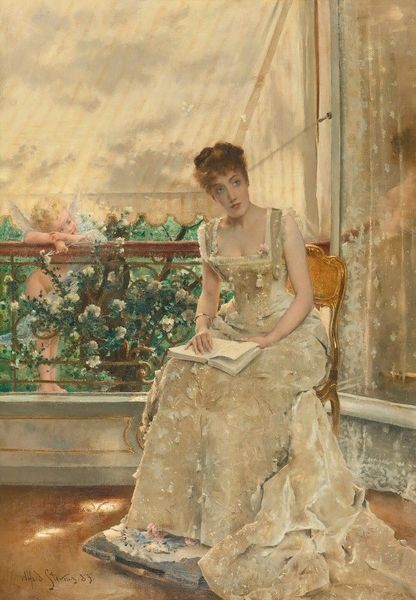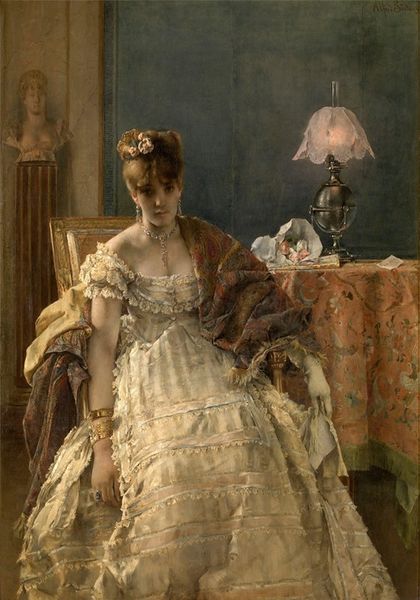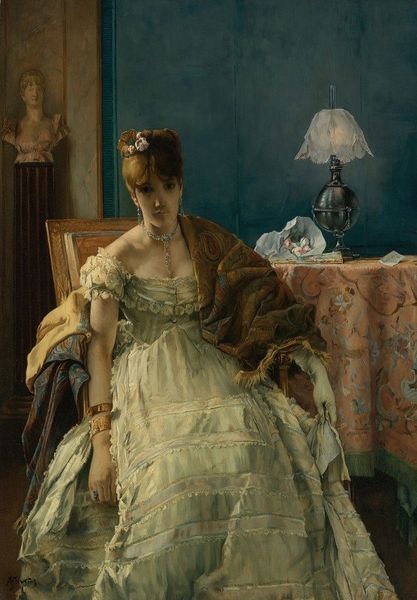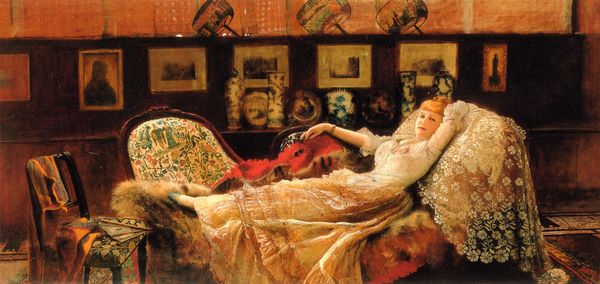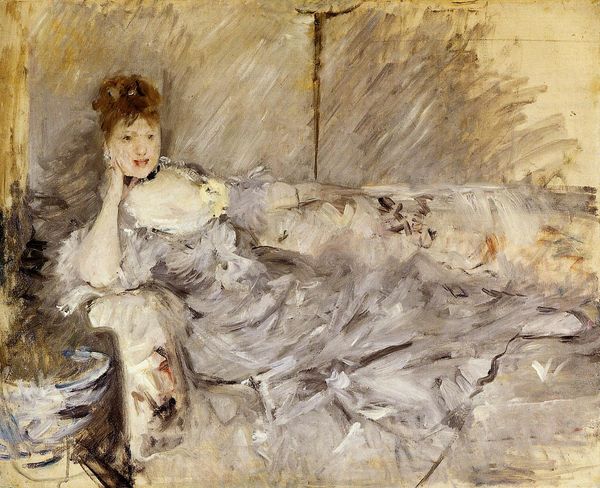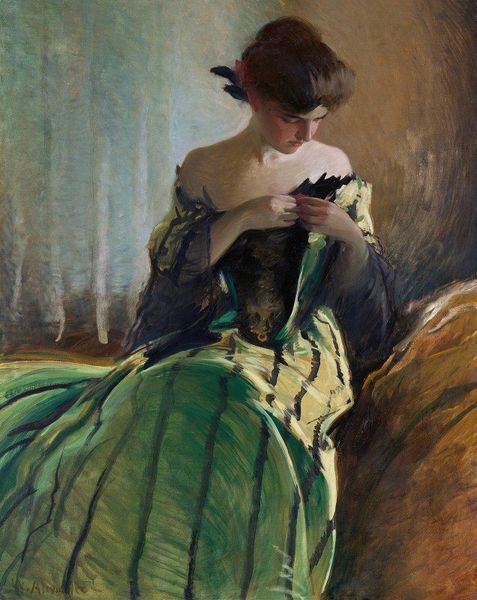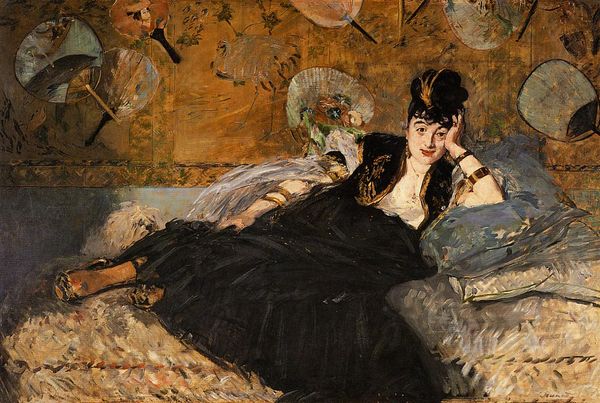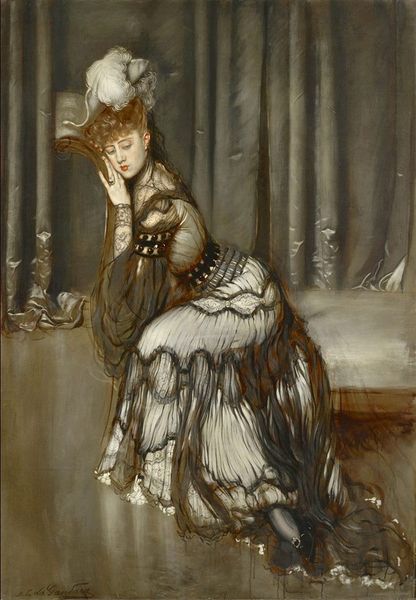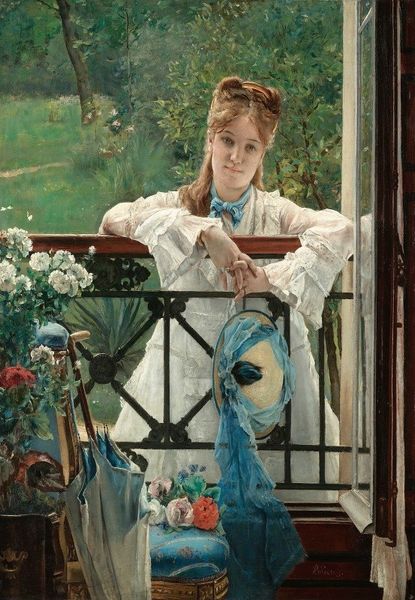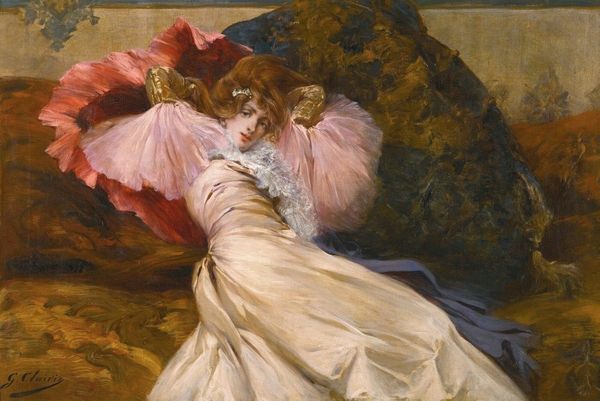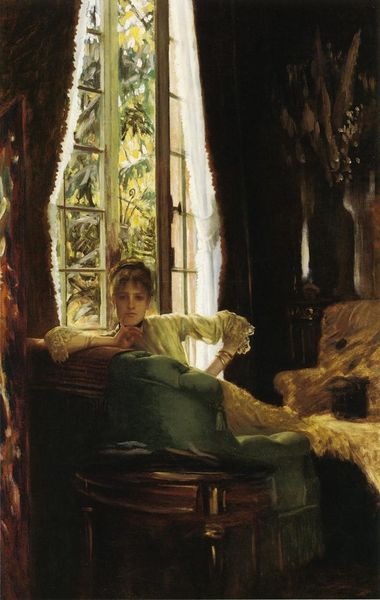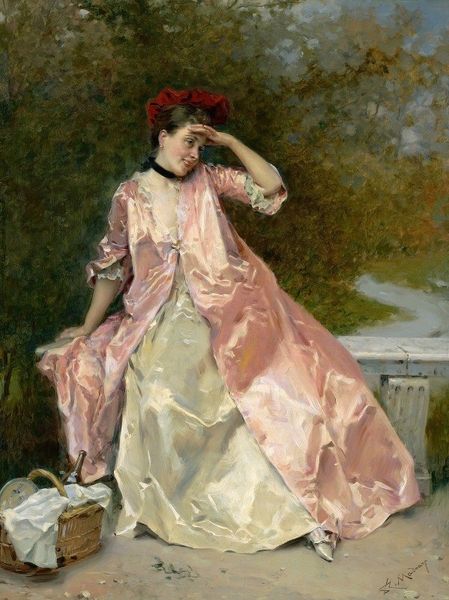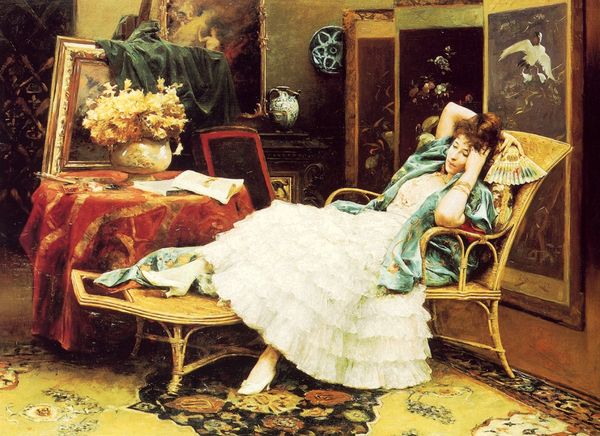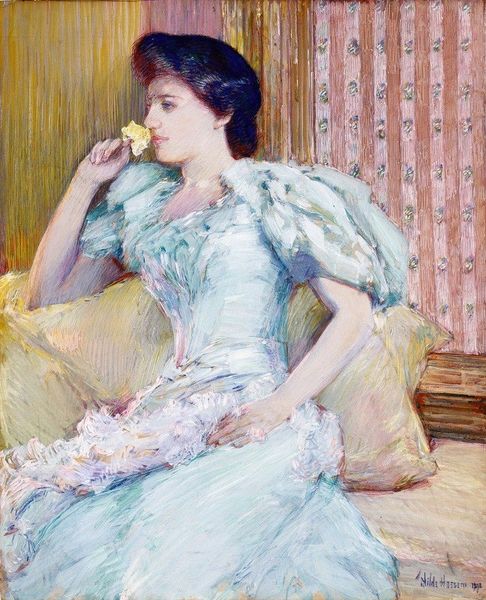
#
gouache
#
figurative
#
possibly oil pastel
#
underpainting
#
muted green
#
pastel chalk drawing
#
painting painterly
#
green and neutral
#
mixed media
#
watercolor
#
warm toned green
Copyright: Public Domain: Artvee
James Tissot made this painting, Seaside, during a period of great social change in France. It portrays a woman in a elaborate white dress, posed languidly on a sofa, gazing out at the beach. Tissot made his name painting scenes of fashionable life in Paris and London. This painting, likely made in the 1870s, is exemplary of this genre. As France modernized, the rise of a new middle class reshaped social life. Seaside resorts became popular destinations. Here, the woman’s attire signifies leisure and affluence, underscoring the social and economic transformations of the time. Yet the woman's gaze seems distant. Is this ennui? Is she bored by the bourgeois lifestyle? To understand the painting's meaning more fully, it's essential to explore the cultural and historical context, considering the social norms, economic structures, and artistic conventions that shaped both Tissot's vision and the society he depicted. Through such research, we can appreciate art as a reflection of its time.
Comments
No comments
Be the first to comment and join the conversation on the ultimate creative platform.
